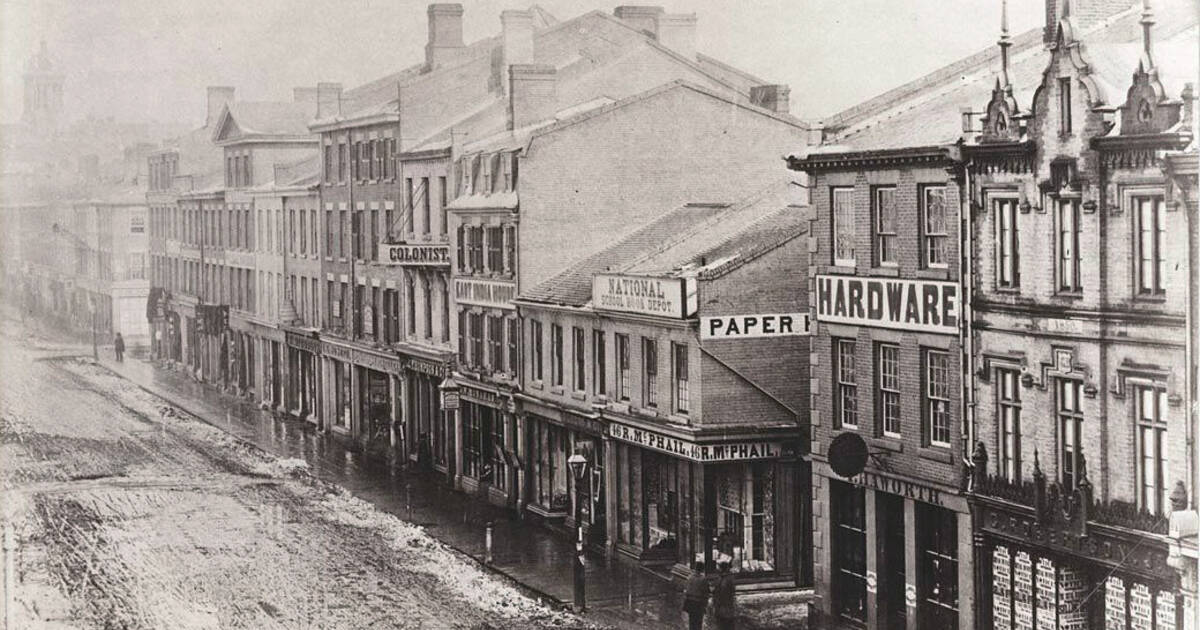
The earliest known photographs of Toronto are surely best known for the panorama of the fledging city taken by civil engineering firm Armstrong, Beere and Hime in 1856 atop the Rossin House Hotel at King and York streets.
Popularized thanks to Michael Redhill's novel Consolation, the 12 photos that make up the stitched series (plus one additional view to the southwest) are the best visual record we have of early colonial Toronto.
In addition to the panorama, however, Armstrong, Beere and Hime took 12 photos at ground level that offer an even closer look at Toronto of the 1850s.
The total set of 25 photos was part of Toronto's bid to become the capital of Canada, and were taken to show off the city's landmarks in an effort to charm Queen Victoria, who was to make the decision.
While she chose Ottawa instead, the photographs themselves remain an invaluable bit of Toronto history.
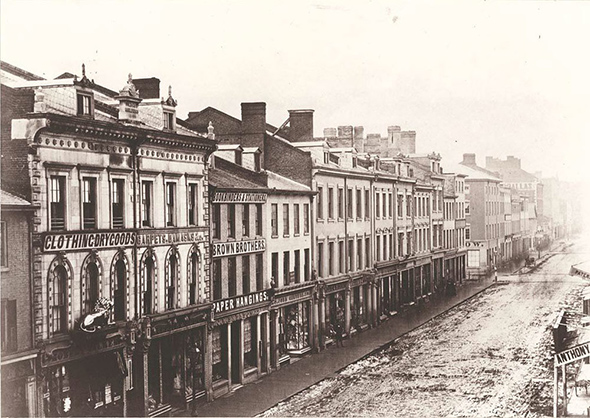
King Street East looking west towards Yonge St. from near Church St. Photo via the Toronto Archives.
Intriguingly, these images actually didn't make it back to Toronto until the city's 150th anniversary in 1984 when they were shown at the St. Lawrence Market.
For all intents and purposes they had been lost in England before they were discovered by a researcher at the Foreign and Commonwealth Office Library in 1979.
While the panorama has tons of cachet for its nearly 360 degree view of the early city, the ground-level photographs might provide an even better record of what Toronto's streetscape was like.
There are excellent views of early King and Wellington streets, as well as landmarks like Oasgoode Hall, Trinity College, and the Normal School.
Only a few of the buildings captured in these early photographs remain, which makes them all the more indispensable when trying to understand what Toronto was like in just two decades after the city was incorporated.
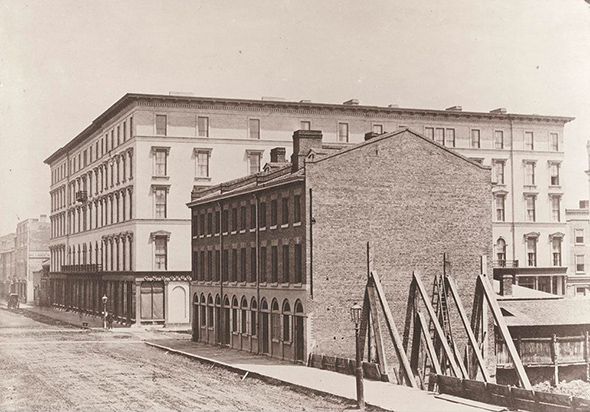
The Rossin House Hotel at King and York streets (from where the panorama was taken). Photo via the Toronto Archives.
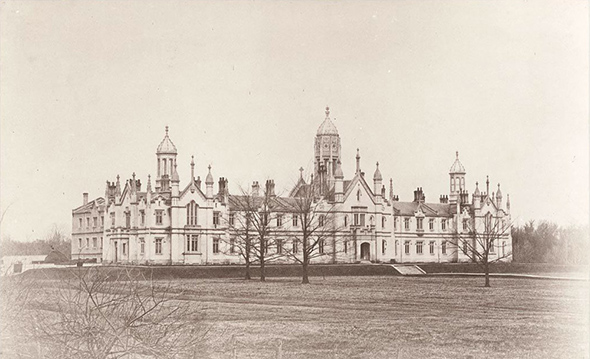
Trinity College (the gates of which remain at Trinity Bellwoods Park). Photo via the Toronto Archives.
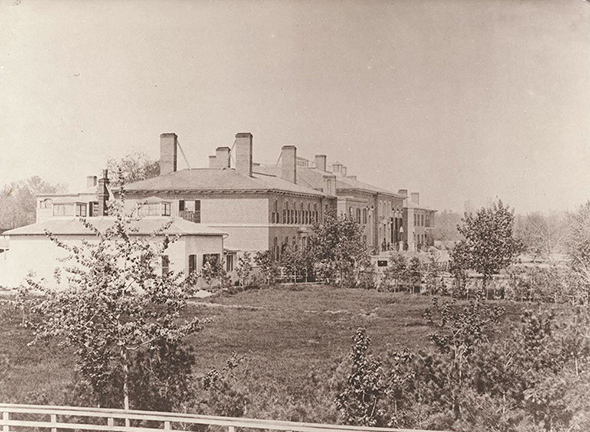
The third parliament buildings in Toronto on Front Street between John and Simcoe streets. Photo via the Toronto Archives.
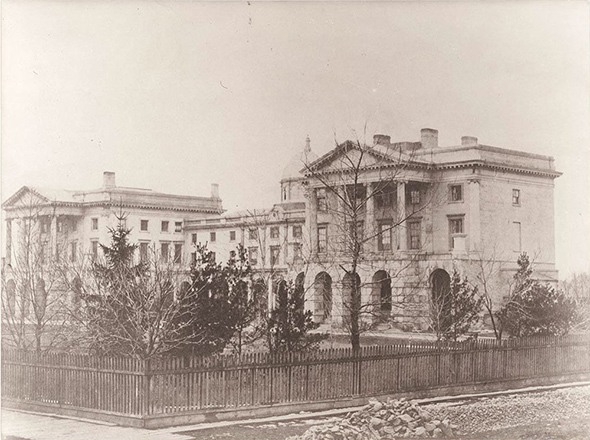
Osgoode Hall before the surrounding trees had grown around it. Photo via the Toronto Archives.
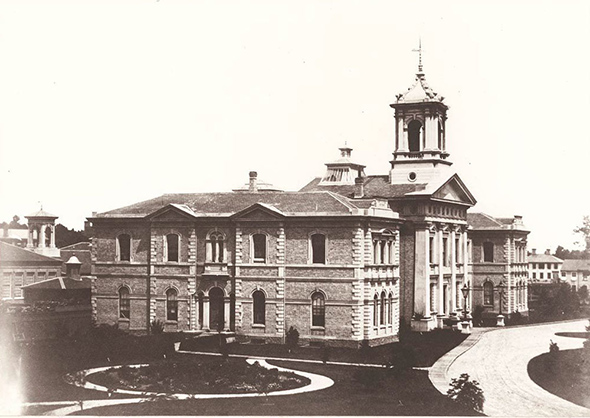
The Normal School (part of the facade of which is retained at Ryerson). Photo via the Toronto Archives.
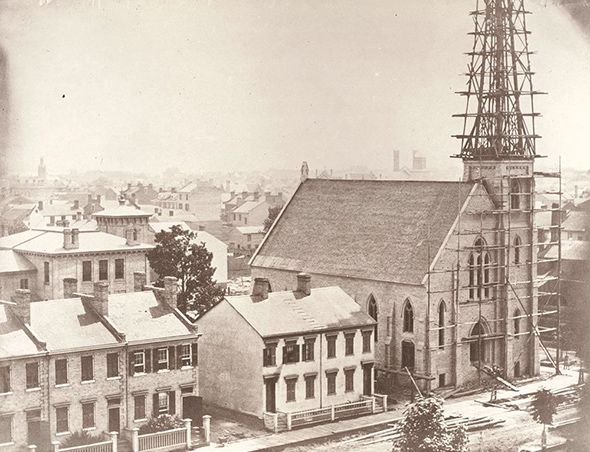
Second United Presbyterian Church on Gould Street. Photo via the Toronto Archives.
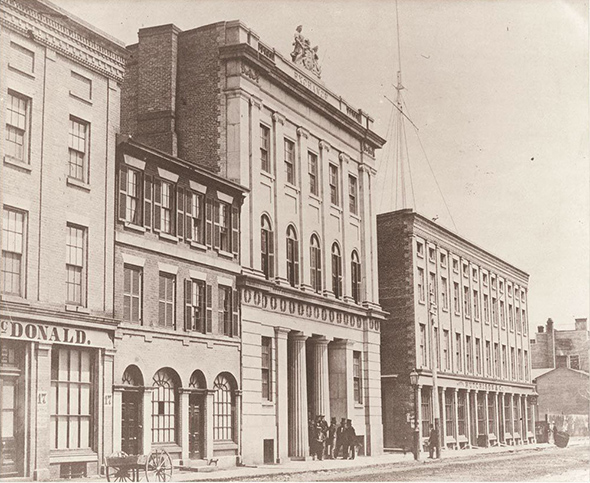
The Exchange on Wellington Street just east of Yonge Street. Photo via the Toronto Archives.
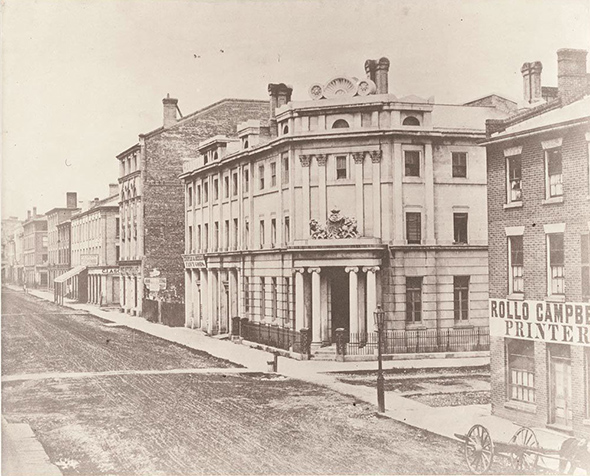
The British Bank of North America at Yonge and Wellington streets. Photo via the Toronto Archives.
by Derek Flack via blogTO

No comments:
Post a Comment